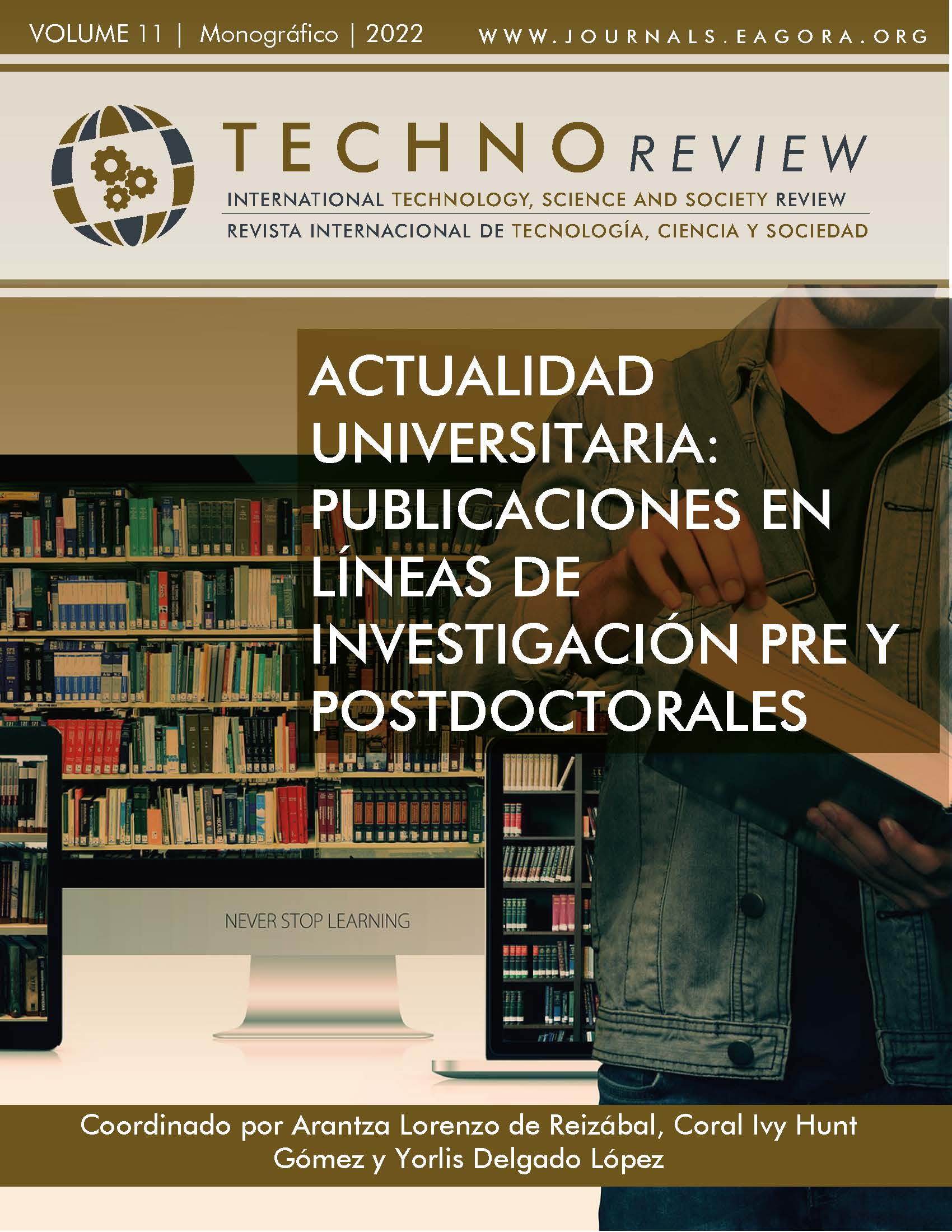Products with vegetable pulp: an alternative for civil engineering
Alternativa de sostenibilidad: materiales con Celulosa
DOI:
https://doi.org/10.37467/revtechno.v11.4435Keywords:
Cellulose, Sustainability, Environment, Waste paper, Valuable waste, Ecological house, Emerging architectureAbstract
The population increase has generated urban development in the different cities consuming natural resources at an accelerated pace, generating a devastating environmental impact, which is inevitable because construction is vital for progress in all countries. Consumption on construction sites generates a shortage of renewable raw materials, in addition to the fact that traditional materials such as clay masonry generate energy and contaminant consumption, which is why the world of construction must be transformed to generate sustainable development. Due to the above, the use of vegetable cellulose as a raw material to mitigate the environmental impact and its use in different construction products is analyzed as a sustainable alternative
References
Agencia, A. P. (2020, enero 9). Tokio 2020: La villa olímpica tendrá camas hechas de cartón. El Comercio Perú. https://elcomercio.pe/casa-y-mas/ideas-y-diseno/tokio-2020-la-villa-olimpica-tendra-camas-hechas-de-carton-noticia/
anónimo. (2021, julio 18). Camas de cartón, robots como público y una inédita entrega de medallas: las curiosidades de los Juegos Olímpicos de Tokio en la era del COVID-19. infobae. https://www.infobae.com/america/deportes/2021/07/18/camas-de-carton-robots-como-publico-y-una-inedita-entrega-de-medallas-las-curiosidades-de-los-juegos-olimpicos-de-tokio-en-la-era-del-covid-19/
Asdrubali, F., D’Alessandro, F., & Schiavoni, S. (2015). A review of unconventional sustainable building insulation materials. Sustainable materials and technologies, 4, 1–17. https://doi.org/10.1016/j.susmat.2015.05.002
Benallel, A., Tilioua, A., Ettakni, M., Ouakarrouch, M., Garoum, M., & Ahmed Alaoui Hamdi, M. (2021). Design and thermophysical characterization of new thermal insulation panels based on cardboard waste and vegetable fibers. Sustainable Energy Technologies and Assessments, 48(101639), 101639. https://doi.org/10.1016/j.seta.2021.101639
Benallel, A., Tilioua, A., Mellaikhafi, A., Babaoui, A., & Hamdi, M. A. A. (2021). Thermal characterization of insulating materials based on date palm particles and cardboard waste for use in thermal insulation building. AMT2020: THE 6TH INTERNATIONAL CONGRESS ON THERMAL SCIENCES.
Boonterm, M., Sunyadeth, S., Dedpakdee, S., Athichalinthorn, P., Patcharaphun, S., Mungkung, R., & Techapiesancharoenkij, R. (2016). Characterization and comparison of cellulose fiber extraction from rice straw by chemical treatment and thermal steam explosion. Journal of Cleaner Production, 134, 592–599. https://doi.org/10.1016/j.jclepro.2015.09.084
Cervantes Garcia, L. A., Valdez del Río, E., & González Enriquez, R. (2010). Una construcción elaborada con muros de papel y cartón comprimidos más otros residuos valorizables. Acta universitaria, 20(2), 31–39. https://doi.org/10.15174/au.2010.78
Desecho contaminante del papel se convierte en casas. (s/f). Portafolio.co. Recuperado el 24 de julio de 2022, de https://www.portafolio.co/negocios/empresas/desecho-contaminante-papel-convierte-casas-114294
Imperadori, M., Salvalai, G., & Pusceddu, C. (2014). Air shelter house technology and its application to shelter units: The case of scaffold house and cardboard shelter installations. Procedia economics and finance, 18, 552–559. https://doi.org/10.1016/s2212-5671(14)00975-7
Kollsker, T., & Malaguti, E. (2021). Models and algorithms for optimising two-dimensional LEGO constructions. European Journal of Operational Research, 289(1), 270–284. https://doi.org/10.1016/j.ejor.2020.07.004
Nubia, R., & Vargas, A. (s/f). ECOBRICK LADRILLO ECOLÓGICO A BASE DE PAPEL RECICLADO PARA MUROS DIVISORIOS ANDRY JULIETH VALERO LOZANO. Edu.co. Recuperado el 24 de julio de 2022, de https://repository.ugc.edu.co/bitstream/handle/11396/4039/20151014%20Monografia%20Ecobrick%20Corregida%20Final.pdf?sequence=1&isAllowed=y
Pickering, K. L., Efendy, M. G. A., & Le, T. M. (2016). A review of recent developments in natural fibre composites and their mechanical performance. Composites. Part A, Applied Science and Manufacturing, 83, 98–112. https://doi.org/10.1016/j.compositesa.2015.08.038
Porada, B. (2013, marzo 18). Catedral de Cartón de Shigeru Ban se construye en Nueva Zelanda. ArchDaily Colombia. https://www.archdaily.co/co/02-244321/catedral-de-carton-de-shigeru-ban-se-construye-en-nueva-zelanda
Prieto Jiménez, S., & Universidad de Cuenca. (2014). Prefabricated panel of lightweight concrete, based on newsprint and cardboard recycled, destined for social housing. ESTOA, 003(005), 51–61. https://doi.org/10.18537/est.v003.n005.06
Reyes-Naranjo, D. F., & Cornejo-Merchán, Y. A. (2014). Estado del arte de la construcción con material reciclable. Facultad de Ingeniería.
Ricciardi, P., Torchia, F., Belloni, E., Lascaro, E., & Buratti, C. (2017). Environmental characterisation of coffee chaff, a new recycled material for building applications. Construction and building materials, 147, 185–193. https://doi.org/10.1016/j.conbuildmat.2017.04.114
Rojas, C., & Sebastián, J. (2019). Ladrillo de cartón - una alternativa de mampostería. Universidad Católica de Cuenca. Carrera de Arquitectura.
Rojas, H. L. (2020, noviembre 8). Inventó ladrillos de cartón para poder terminar su casa y ahora los usan en edificios públicos. Clarín. https://www.clarin.com/zonales/invento-ladrillos-carton-casa-ahora-usaran-terminar-hospital_0_31W4Fwty5.html
Rosas-Flores, J. A., & Rosas-Flores, D. (2020). Potential energy savings and mitigation of emissions by insulation for residential buildings in Mexico. Energy and Buildings, 209(109698), 109698. https://doi.org/10.1016/j.enbuild.2019.109698
Shigeru Ban y la casa de cartón que salvó al mundo. (2014, septiembre 13). Revista Travesías | Inspiración Para Viajeros. https://www.travesiasdigital.com/destinos/shigeru-ban-y-la-casa-de-carton-que-salvo-al-mundo/
Zhou, C., Tang, B., Ding, L., Sekula, P., Zhou, Y., & Zhang, Z. (2020). Design and automated assembly of Planetary LEGO Brick for lunar in-situ construction. Automation in Construction, 118(103282), 103282. https://doi.org/10.1016/j.autcon.2020.103282
Downloads
Published
Issue
Section
License
Copyright (c) 2022 TECHNO REVIEW. International Technology, Science and Society Review /Revista Internacional de Tecnología, Ciencia y Sociedad

This work is licensed under a Creative Commons Attribution-NoDerivatives 4.0 International License.
All articles are published under an Attribution-NoDerivatives 4.0 International (CC BY-ND 4.0) license. Authors retain copyright over their work.

